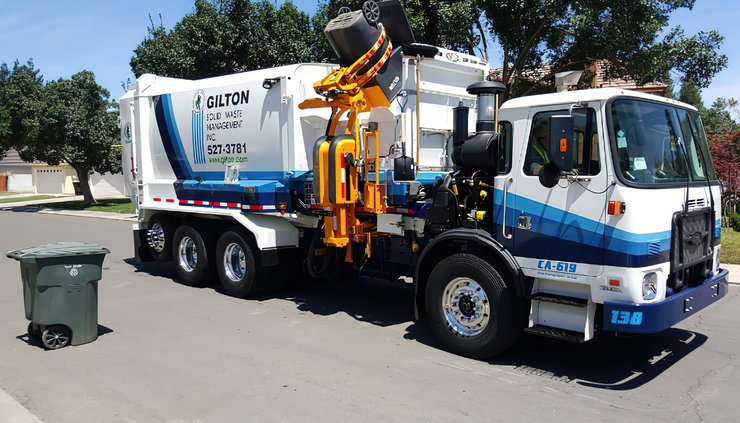The new year will bring new rules for recycling for Riverbank residents while changes in the city’s utility billing are already in effect.
Beginning Jan. 1, 2023, food waste joins the list of items to be disposed of in the green waste recycle bins. It is the effect of California Senate Bill 1383.
The change is reportedly to reduce methane emissions coming from landfills. The target in the state was 50 percent reduction in 2022 and 75 percent by 2025.
Organic waste will now include green materials, wood waste, paper, cardboard, landscape and pruning waste, along with food scraps and food-soiled paper.
Gilton Solid Waste Disposal will begin collecting food waste here next year.
Since organic material will no longer be allowed in regular garbage, they suggest a few tips for collecting it separately.
A small container can be placed in a convenient place in the kitchen to fill with food scraps. They then say the food can be periodically dumped into the green waste container outside.
They note that food scraps include all cooked and uncooked food, such as meat, fish, fruits, vegetables, peels, rinds, pits, breads, pasta, grains, rice, eggshells, coffee grounds, tea bags, and expired and spoiled food.
But they warn never to put plastics, like bags, wraps, cups, containers, or gloves, as well as cans, glass, and even compostable foodware items in the green waste cart.
For more information on the recycling, call Gilton at 209-527-3781, or see their website, www.Gilton.com.
Utility Billing Changes
Riverbank residents, meanwhile, should have received their bi-monthly utility bills from the city, with news of changes in scheduling, effective Nov. 1.
Where some residents have worried that the city has moved to monthly billing, such is not the case. It’s still bi-monthly. The most obvious change will be in when payment is due.
In the past, payments had to be received by the end of odd months when they were issued. The new policy calls for utility payments to become due just seven (7) days after bills are issued. So, bills the city sent on Nov. 1 were due Tuesday, Nov. 8.
In the past, late fees were implemented the day after the due date, but now, late fees will be applied to accounts that are not paid by close of business 35 calendar days after the bill is issued.
Notice of Disconnection, written, will be mailed to the customer at least 10 business days before it happens. If the notice is returned in the mail as undeliverable, notice will be left at the residence at least 48 hours before disconnection if unable to reach the customer by phone.
Any account that is delinquent for at least 60 days will be disconnected, officials say. Customers will be required to pay their full balance and a reconnection fee to re-establish water service.
They note that residents can submit a request for a payment arrangement, at least 48 hours before discontinuation to extend the bill beyond the shutoff date.
In addition, the city has changed the utility deposit required of new customers.
In the past, it was just $60, but now the total deposit is $200 for water, sewer, and garbage services.
The city has more information on its website: www.riverbank.org/634/Policy-on-Discontinuation-of-Residential.





